Soon Fresh Air will be hosting Amy Schumer to discuss her new...
Soon Fresh Air will be hosting Amy Schumer to discuss her new show Inside Amy Schumer on Comedy Central. Above, a skit from the show where Schumer plays the cancer card after hearing one of the writers, Tig Notaro, has cancer. Notaro actually did have cancer and her life-changing stand-up routine about her diagnosis with breast cancer and her mother's death led Louis C.K. to say, "The show was an amazing example of what comedy can be. A way to visit your worst fears and laugh at them." Her routine later made an appearance on This American Life, which is what made Fresh Air interested in bringing her on the show. It was a really great interview.
For good measure, a Fresh Air interview with Louis C.K. about Notaro's routine.
Lost At E Minor: Wandering around the lovely city of Paris,...
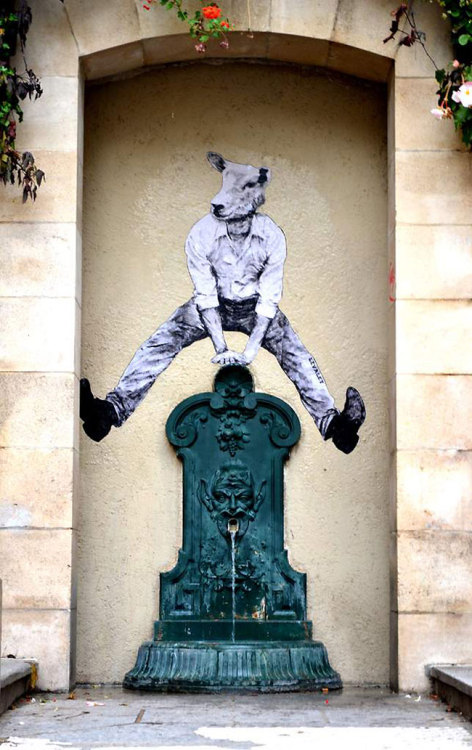
Wandering around the lovely city of Paris, street artist Levalet finds the best spots to glue, install and apply his art. He sees the street as his canvas and as a playground to have fun and to let others enjoy his great ideas.
Arrested Development creator Mitch Hurwitz on the deeper truths...
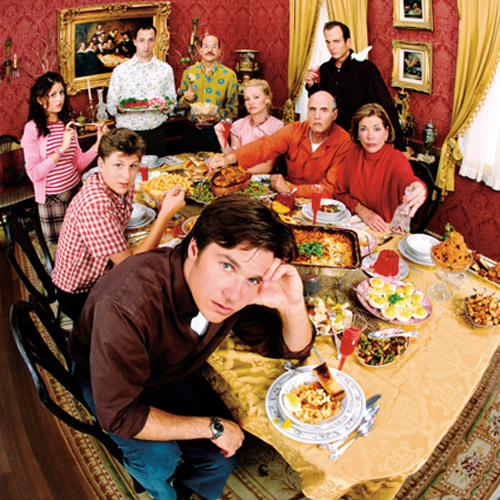
Arrested Development creator Mitch Hurwitz on the deeper truths of the show:
What is honest in the show is there are family dynamics. The family speaks in code, family has its own mythology. In many ways, your family wants you to be what they think you are. My father said to me recently, 'Hey, I didn't know you could write longhand.' Or, 'I didn't know you knew how to write in handwriting.' [And I said] 'Of course I do. I'm a grown man.' 'Oh, I didn't know you knew how.' 'I think you're thinking of when I was 8.' 'You definitely couldn't [then]. I'll show you cards. …' And there's something fun about how your family won't let you change, in a way, and the push and pull of like, 'No, I'm a different person!' And of course, they're kind of right.
This clip of Arrested Development creator Mitch Hurwitz talking...
This clip of Arrested Development creator Mitch Hurwitz talking about the George Michael-Maeby relationship got cut from the interview we aired, but it's so good we thought we'd share it with you here.
Robert Malley of the International Crisis Grouptalks to Terry...

Robert Malley of the International Crisis Grouptalks to Terry Gross about how the war in Syria is changing the understanding of borders in the region:
We really need to change our mental grid, our political compass. This is not a war that is being fought by nation-states. Borders are being erased. Borders are becoming liquid in a way and … Hezbollah's fighting in Syria. We could also say that some Sunnis in Lebanon are fighting in Syria as well. Some Sunni rebels are firing back into Lebanon against Hezbollah targets. Iraqi Shiites are fighting on behalf of the regime, just as Iraqi Sunnis are trying to help their coreligionists in Syria. So I think you have to think of Lebanon, Syria and Iraq as one giant integrated area of conflict in which national boundaries count much less than sectarian concessional boundaries.
Arrested Development creator Mitch Hurwitz is on the show today...
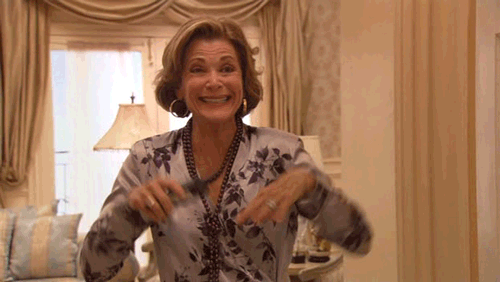
Arrested Development creator Mitch Hurwitz is on the show today and let's be honest: We're excited!
"This has become not just a war within Syria. It has become a regional, sectarian civil war. Perhaps..."
"This has become not just a war within Syria. It has become a regional, sectarian civil war. Perhaps the best way to put it is to say that what was a war in Syria with regional spillover has now become a regional war with a Syrian focus."- Robert Malley of the International Crisis Group talks with Terry Gross about the expansion of the war in Syria.
David Bianculli reviews the new Netflix season of Arrested...
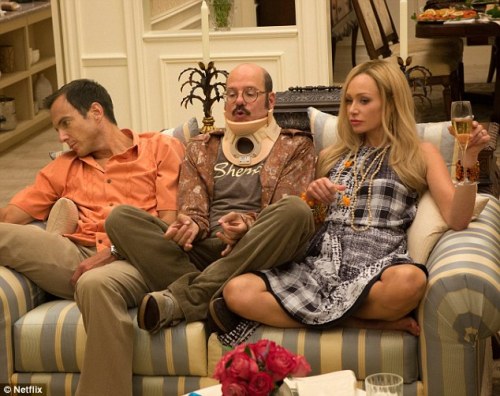
David Bianculli reviews the new Netflix season of Arrested Development:
Since each cast member gets to take center stage for at least one episode, and it seems almost unfair to single out any of them — except for Bateman, whose dry delivery is the gravity that keeps this whole enterprise from spinning off into space. But it would seem just as unfair not to heap extra praise upon Jessica Walter and Portia de Rossi — as Michael Bluth's mother and sister, respectively — for their fully committed, truly funny work here.
Also? Coming up tomorrow, an interview with the series' creator, Mitch Hurwitz.
Photography by Holly Wilmeth via NPR Picture Show: What about...

Photography by Holly Wilmeth via NPR Picture Show:
What about the series of children holding huge insects in the foreground?
"I didn't want to show faces, just insects — the beautiful lines of their bodies, and then the insect."
Alysia Abbott, who writes about growing up with a gay dad in...
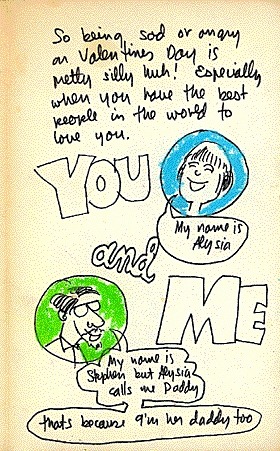
Alysia Abbott, who writes about growing up with a gay dad in 1970s San Francisco in her new memoir Fairyland, talks to Terry Gross about her awareness of the AIDS epidemic:
I got to know a lot of my dad's friends, but this particular friend I became very close with and had a crush on, and he went to my birthday party, and he even bought liquor for my friends and I once when I was a teenager. It hit me when he died. I never got to say goodbye to him. … Like a lot of young men in the city, he didn't want to share his decline with very many people. He basically went into hiding and didn't tell anyone about it other than his lover and his roommate. And so my father had heard he was sick, and I had suggested we go visit him, but we never did. And time passed, and I really didn't know what was going on until my father got a call that he had died.
My freshman year at college I wrote an essay about him. You know, just about missing him and as well about the homophobia that I had seen at the time in San Francisco when the AIDS epidemic was hitting very hard. Some men would be targeted in the city for violence, and there would be anti-gay graffiti scrawled on walls or on the back of bus seats. … This affected me, and so I wrote about all of this in this essay about how, because of Sam, I was now going to stand up against homophobia, and I would defend gay men. But in this essay I never even wrote that my father is gay, and I never even wrote that he might be HIV-positive, which, at the time, he was. So I was aware of what was going on, but I probably had a lot of denial or fear about how the AIDS epidemic was going to hit me at home.
Image from a Valentine's Day card Alysia's father gave her via SteveAbbott.org
Pulpit Rock, Norway Image via @EarthPics

Pulpit Rock, Norway
Image via @EarthPics
Author Alysia Abbott, author of Fairyland, tells Terry Gross...
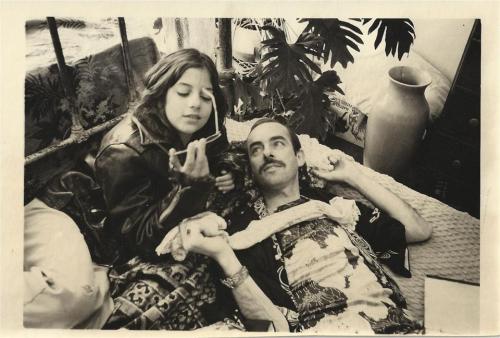
Author Alysia Abbott, author of Fairyland, tells Terry Gross about realizing she was an anomaly in the 1970s San Francisco gay community:
I think from a young age I realized I was something different in this community because it was a community of young men, and here I was a little girl, and so I didn't see other little girls around. So I always felt different, but from an early age I sort of liked this difference: It meant I could get all the attention. There was no one like me, and I felt sort of special in a way. But I think on one level, as a straight child of a gay parent, I always felt like a little too straight for the gay community, but also a little too gay for the straight community. So you know, I think I felt a little bit ill at ease in either world.
Image of Abbot and her father, Steve, via The Boston Globe
It's almost the weekend. Thus, a cat as sushi. Lost At E...

It's almost the weekend. Thus, a cat as sushi.
[When] I came across this bizarre ad series by the Japanese company Tange and Nakimushi Peanuts, I was greatly disturbed. How could anyone even think of letting a cat rub its furry body all over their sushi? This is wrong on so many levels.
Does the Salk Institute have a bad angle? We think not. via...

Does the Salk Institute have a bad angle? We think not.
via Smithsonian
David Edelstein on the new collaboration from director Zal...
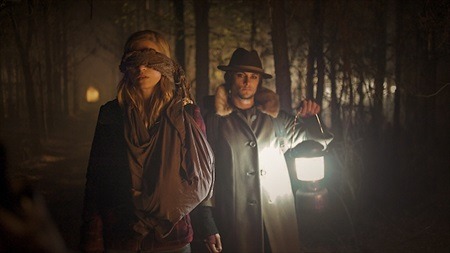
David Edelstein on the new collaboration from director Zal Batmanglij and actress and screenwriter Brit Marling:
[Brit] Marling plays Sarah, an agent who infiltrates the group. She doesn't work for the FBI. Her employer is a private security and intelligence firm run by the sleek, profit-oriented Sharon, played by Patricia Clarkson. Its clients are Big Pharma, Big Oil, or Big Rich Any Corporation that, according to the group The East, poisons the world and everyone in it.In outline, it's a standard conversion narrative — one of those melodramas in which someone on the morally wrong side has a spasm of conscience and maybe crosses over. Maybe.
Boston Globe reporters Kevin Cullen and Shelley Murphy spoke to...
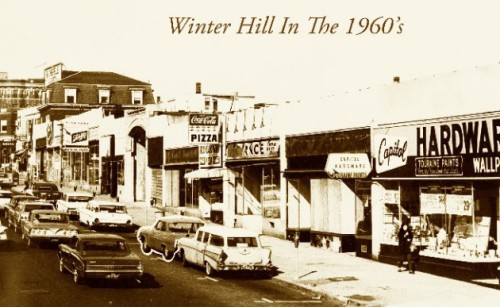
Boston Globe reporters Kevin Cullen and Shelley Murphy spoke to Dave Davies about their biography of Boston organized crime legend Whitey Bulger:
Whitey talked about when he was 16 years old, he was in the back of a precinct house in South Boston, and he said a police officer jammed a gun in his mouth, and the police officer was leaning so close to him he could smell the liquor on his breath. Even at that tender age of 16, Whitey was clearly in the fast life, in the criminal life, and that sort of began that confrontational attitude he had with authority right there.
Image via WBUR, The Winter Hill neighborhood in Somerville, MA (North of Boston) was the headquarters and namesake of Bulger's gang.
Julie Delpy talks about the thematic thread that links Before...
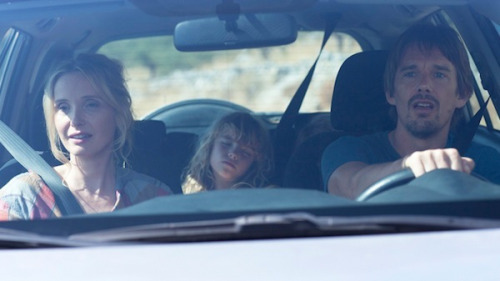
Julie Delpy talks about the thematic thread that links Before Sunrise, Before Sunset and Before Midnight:
The films, each … catch [Jesse and Celine] at a moment where they make a choice, and that's how their lives [are] carved more and more as we go into by these choices we make. And every time we meet them they're at that moment, basically: the choice to get off the train, the choice to miss the plane, the choice to, 'What do we do now? … Do we separate? Do we stick together and figure it out, what do we do?'
Good morning, Friday! Via Retronaut
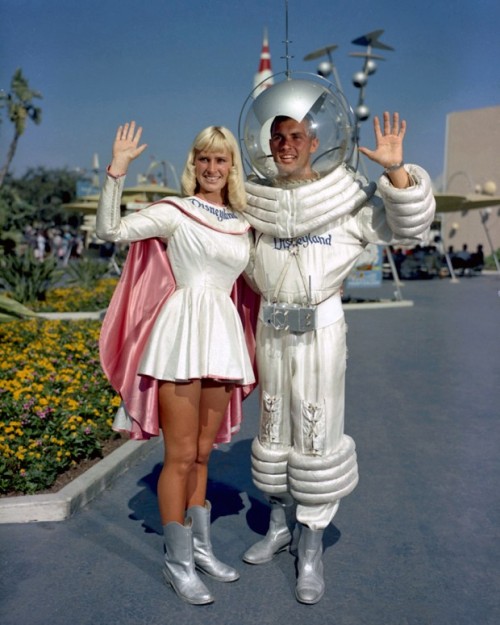
Good morning, Friday!
Via Retronaut
It's haircut season, kids!

It's haircut season, kids!
Ethan Hawke talks to Terry Gross about how Before Midnight...
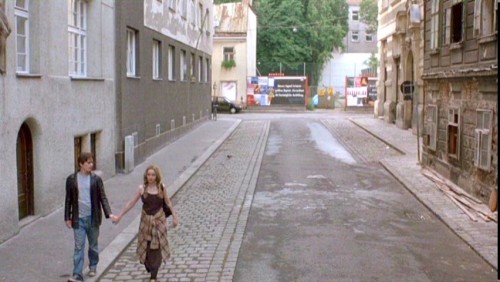
Ethan Hawke talks to Terry Gross about how Before Midnight differs philosophically from Before Sunrise and Before Sunset:
The first two films deal so much with romantic projection, and [with] the third one we felt like we really couldn't do that again. We needed to try to address the harder, more difficult aspects of daily life and what it means when you get what you want, and what you do with what you want when you have it, and do you still want it?














No comments:
Post a Comment